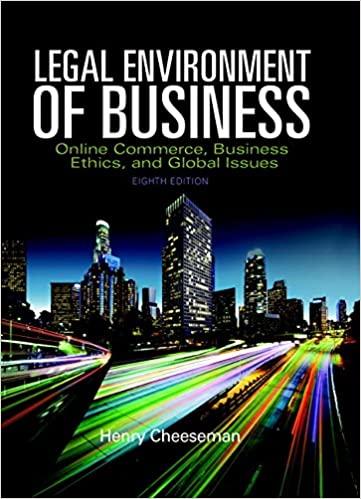Question
An officer is sent to conduct a welfare check to ascertain the well-being of an elderly citizen who may or may not be suffering from
An officer is sent to conduct a welfare check to ascertain the well-being of an elderly citizen who may or may not be suffering from early on-set dementia. The officer determines that the citizen is not in any danger. The officer then establishes a friendship with the citizen and he begins stopping by her house each week while he is on duty. She trusts him because he is always in uniform. She begins offering him money, first in small amounts, and later in larger amounts. He initially declines the money, but he later begins accepting it. Over the course of a few weeks, he eventually accepts a thousand dollars from her in cash and in credit card purchases made on the Internet.
- What are the ethical implications for a public safety officer who accepts gratuities in this way?
- At what point does accepting gratuities become a crime, or when does it transition into a case of defrauding the elderly for personal gain?
Step by Step Solution
There are 3 Steps involved in it
Step: 1

Get Instant Access to Expert-Tailored Solutions
See step-by-step solutions with expert insights and AI powered tools for academic success
Step: 2

Step: 3

Ace Your Homework with AI
Get the answers you need in no time with our AI-driven, step-by-step assistance
Get Started


